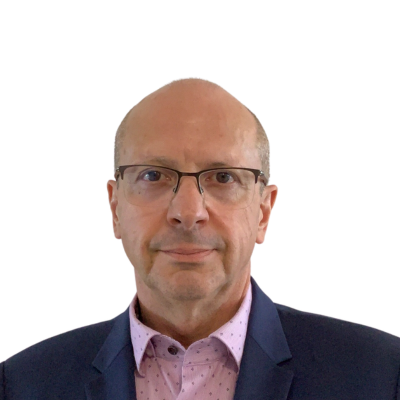Author : Ruzanna TARVERDYAN, PMP

Achievement of Sustainable Development is the most urgent and imperative collective duty that all development stakeholders must work on! As stated in the report of the UN Secretary-General: A Life of Dignity for All, the world’s quest for dignity, peace, prosperity, justice, sustainability and an end to poverty has reached an unprecedented moment of urgency. Addressing it without compromising our shared prosperity and the right to development of future generations requires alteration of public sector governance and development of monitoring and reporting framework for tracking implementation and follow-through on the agreed strategies and policies to achieve the Sustainable Development Goals.
Since first United Nations Conference on Environment and Development, Rio conference in 1992, the international community has inspired to integrate the social, economic, and environmental dimensions within a single framework. Nonetheless, no country has yet succeeded. Prevailing governance systems tend to separate these pillars at policy, planning, and management levels. This disconnect has led to a widening of inequality, both at global and national levels, pervasive social tension, an alarming pace of climate change and environmental degradation.
There is a consensus that given the political complexity of reforms, sustained progress will require ownership and entail a strong focus on capacity-building in key public institutions. And, now how does this Quest for the new paradigm influence the Project Management Community?
I was born in Soviet Armenia, but graduated from the Yerevan State University already when my small country declared independence from former the Soviet Union. And it was precisely in 1992, when I was invited to manage the first Institution Building Project in Armenia, financed by the World Bank Loan. Before taking the directorship of the Aid Coordination Center I was further engaged in multiple, Rehabilitation, Structural Adjustment and Enterprise Development projects. My Government was committed to a detailed program of interventions, and accomplished most of the projects' objectives. The Bank responded with a relevant technical assistance to Armenia's needs and built management capacity, enabling key reforms, for the transition to a private sector based economy.
The early 2000 were years of transformation of multilateral thinking towards more effective and efficient delivery on Human Development outcomes. Dedicated to promotion of social justice and passionate about the role of international development institutions, in 2001 I embarked on my international career and joint the International Labour Office as a young professional to become part of the decent work generation. It was with an immense pride, that already in Geneva, I received the news that Operations Evaluation Department Independent Evaluation Office(now Group) 2004 OED Good Practice Award went to the Armenia Rehabilitation Credit; and 2005 OED Good Practice Award for Best Country Program was granted to Armenia Country Team 1996-2002, I had the pleasure and the privilege to work with.
Since the inception of ILO's Decent Work Agenda in 1999, Decent work has become a universal objective and has been included in major human rights declarations, UN Resolutions and outcome documents from major conferences including Article 23 of the Universal Declaration of Human Rights (1948), the World Summit for Social Development (1995), World Summit Outcome Document (2005), the high level segment of ECOSOC (2006), the Second United Nations Decade for the Eradication of Poverty (2008-2017), Conference on Sustainable Development (2011) and in the UN’s 2030 Agenda for Sustainable Development (2015).
There is a universal acceptance, that productive employment and decent work are key elements to achieving a fair globalization and poverty reduction. The Decent Work Agenda sums up the aspirations of people in their working lives and aims at simultaneous pursuit of four objectives: job creation, rights at work, social protection and social dialogue, with gender equality as a crosscutting objective. It encompasses productive employment opportunities, that delivers a fair income, ensure security in the workplace and provide social protection for families, it calls for working environment that guarantee better prospects for personal development and social integration, freedom for people to express their concerns, organize and participate in the decisions that affect their lives and equality of opportunity and treatment for all women and men.
The new 2030 Agenda for Sustainable Development adopted by all UN Member States during the UN General Assembly in September 2015, among the 17 Sustainable Development Goals, defined Goal 8: Promote sustained, inclusive and sustainable economic growth, full and productive employment and decent work for all. Furthermore, key aspects of decent work- employment creation, social protection, rights at work, and social dialogue, are widely embedded in the targets of many of the other 16 goals of the UN’s new development vision.
During the 101st Session of the International Labour Conference, in 2012 the tripartite constitutes called for “Giving globalization a human face”. There is universal consensus, as supported by the empirical results, that the current model of globalization is evidently yielding uneven results for countries’ sustainable development. Nobel Memorial Prize-winning economist Joseph Stiglitz gave a powerful speech in 2013, at the annual AFL-CIO convention in Los Angeles concluded that not all nations succeed in reaping the fruits of international expansion, a cutting edge technology and making globalization serve their national interest- to create ”shared prosperity”— the only kind of prosperity that can truly be sustainable.
The Agenda 2030 explicitly calls for integration of multiple dimensions of sustainable development into a single framework and there is a wide consensus on a need of trans-disciplinary analysis embracing a complex system consisted of multiple dimensional phenomena such as globalization, poverty and other constituents of sustainable development.
As rightly submitted by the World Economic Forum, already, artificial intelligence is all around us, from self-driving cars and drones to virtual assistants and software that translate or invest has minimised human errors, eliminated low value-adding human work and accelerated the speed of work, while creating a superior employment experience for the broader workforce. Impressive progress has been made in AI in recent years, driven by exponential increases in computing power and by the availability of vast amounts of data, from software used to discover new drugs to algorithms used to predict our cultural interests.
As Professor Klaus Schwab, the Founder and Executive Chairman of the World Economic Forum foresees it, as we are living through the Fourth Industrial Revolution, these new transformation will be unlike anything humankind has experienced before: it may lead to human augmentation, as a result of the inexorable integration of technology in our lives, some of our quintessential human capacities, such as compassion and cooperation could diminish, the revolutions occurring in biotechnology and AI, will compel us to redefine our moral and ethical boundaries.
In 2004 Finn Kydland during his Novel Lecture recalled the words of Robert Lucas, 1980 Nobel Laurate in Economics, who defined the functions of theoretical economics:
to provide fully articulated, artificial economic systems that can serve as laboratories in which policies that would be prohibitively expensive to experiment with in actual economies can be tested out at much lower cost… Our task, as I see it…is to write a FORTRAN program that will accept specific economic policy rules as ‘input’ and will generate as ‘output’ statistics describing the operating characteristics of time series we care about, which are predicted to result from these policies.”
Kidland suggested to place people in desired model environments and record how they behave under alternative policy rules and rightly stated that the required information on “individual responses could be documented relatively cheaply by means of… censuses, panels [and] other surveys…”
United Nations Secretary-General António Guterres, in his briefing to the Security Council on Global Governance Post-COVID-19, stated that the Covid-19 pandemic is one of the most dangerous challenges this world has faced in our lifetime. It is above all a human crisis with severe health and socio-economic consequences.
As stated by the UN Secretary-General Ban Ki-moon, World Day of Social Justice 2014: “experience shows that economic growth, on its own, is not sufficient. We must do more to empower individuals through decent work, support people through social protection, and ensure the voices of the poor and marginalized are heard.”
In 2002 another Nobel laureate Ronald Coase in “Why Economics Will Change” had criticized this failure to look at the system as the object of the study and highlighted objectively that it may well take quiet long time to do so:
„Now how does it look? Well, that it’s complicated is not a question, nor that it could take a long time if we start, as I hope we will, to study this system. Studying it may take one hundred years. It may take two hundred years. But anyway, we should start.“
The availability of statistical information has considerably improved during. The advent of information and communication technologies, along with the Fourth industrial revolution provides an unprecedented opportunity to strengthen data collection and statistical analysis. Enhanced data availability will create the information basis for development of global models, thus providing an analytical underpinning for global governance. The methodological advancement of statistical development and analysis, and most importantly the ”data revolution” called by the report of the UN Secretary General’s High Level Panel will create legal, political and methodological grounds for such a change.
There is an ongoing debate about the shift: from hands to heads to hearts and giving a human face to work! Faced with the immense challenges embodied by the SDGs and accentuated by COVID-19, as the world is embarking on the implementation of the Great Reset initiative, announced by the World Economic Forum, there is an urgent need for global stakeholders to cooperate in simultaneously managing the direct consequences of the COVID-19 crisis and to improve the state of the world. Within this context humanizing the work is becoming an imperative and not just an option!


 The DA tool kit also enables us to extend agility beyond teams to the entire organization. This we can achieve by using the DA four levels model :
The DA tool kit also enables us to extend agility beyond teams to the entire organization. This we can achieve by using the DA four levels model : Philip started his presentation with a «Hyperspeed overview of DA», which highlighted some of the key advantages of the Disciplined Agile toolkit over other Agile frameworks that decide our WoW for us even before we start. Philip made it very clear that «One Size» does not fit all process decisions.
Philip started his presentation with a «Hyperspeed overview of DA», which highlighted some of the key advantages of the Disciplined Agile toolkit over other Agile frameworks that decide our WoW for us even before we start. Philip made it very clear that «One Size» does not fit all process decisions.















